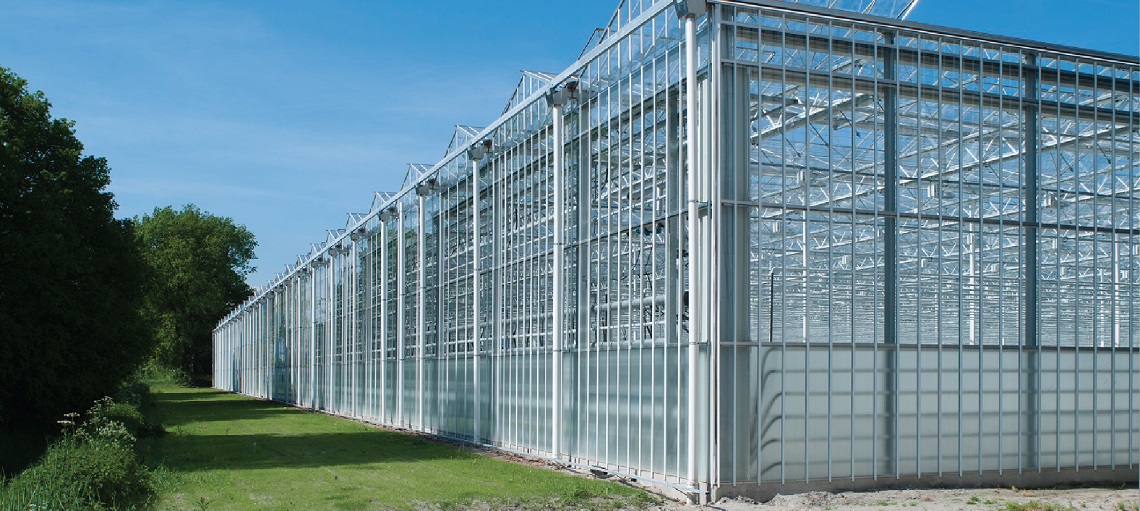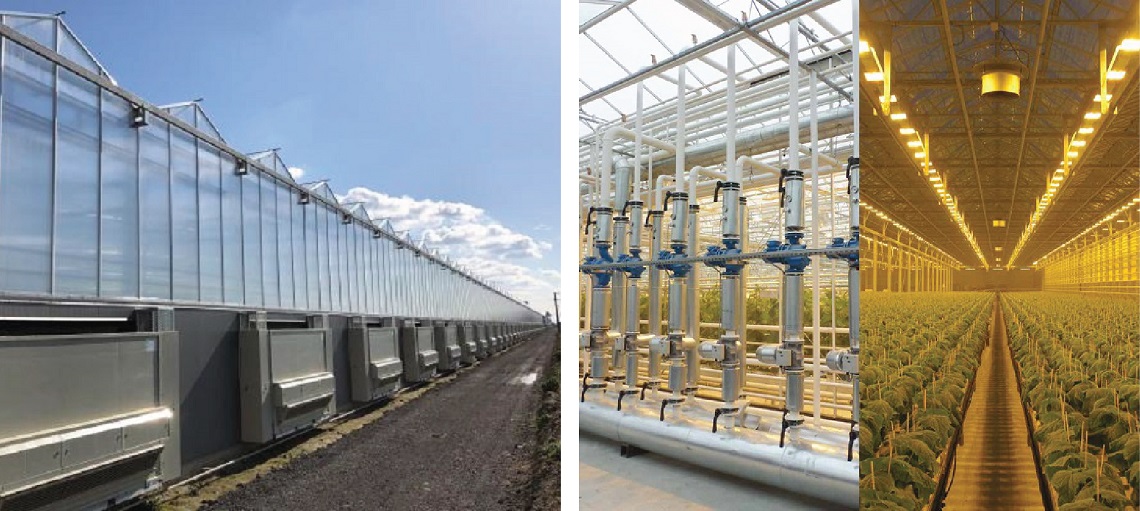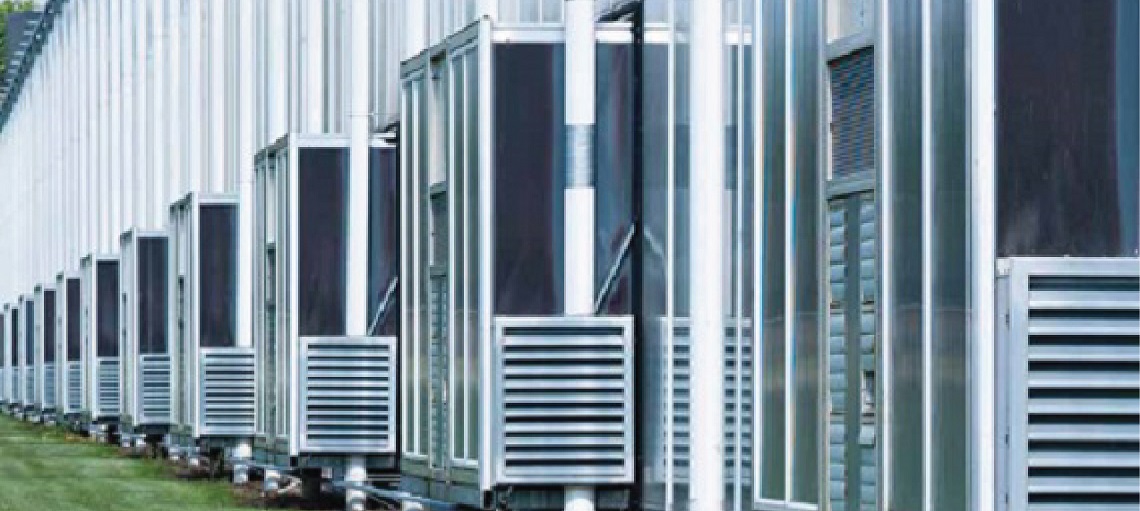Going Green: The Rise of Greenhouses in Food Production in the Face of Climate Change
As the world grapples with the escalating impacts of climate change, the agricultural sector is undergoing a significant transformation. The traditional open-field farming is increasingly being supplemented by the greenhouse revolution—a testament to innovation in the face of adversity.

As one of the largest suppliers of livestock farming equipment in the world, Big Dutchman recognises the ongoing revolution with modern horticultural solutions, specifically with the use of greenhouses. In fact, a recent report shows that the commercial greenhouse global market size in 2024 projected to total USD47.6 billion, and is expected to reach USD66.8 billion by 2029. This represents a Compounded Annual Growth Rate (CAGR) of 7% during the 5-year forecast period, which means alternative methods to agriculture is gaining momentum.
Aside from climate change that can adversely affect food production, other factors such as rising global population, increasing food demand and the necessity to enhance crop yield are all set to drive major investments into horticulture. Big Dutchman’s recent partnership with the Dutch-based Ammerlaan group – a renowned full-service provider for innovative greenhouse projects – is another clear indication of the size and scale of developments in the horticulture market.
The Greenhouse Solution for the Climate Challenge
Climate change has introduced a host of challenges for food production. Research indicates that around 30% of year-to-year fluctuations in crop yields are attributed to climatic changes. As global temperatures on the rise and extreme weather events becoming more frequent, the reliability of food production is under threat. By 2100, it is expected that nearly 90% of the world’s population may face losses in food production if emissions continue to rise.
In response, greenhouses are being increasingly seen as a viable alternative and the way forward. These controlled environments allow for year-round production, independent of external weather conditions. They are highly productive, water-conservative, and environmentally protective. The technology within greenhouses is rapidly advancing, with systems today achieving yields never before realised.

Big Dutchman’s partner Ammerlaan for example is one such company that is revolutionising horticultural farming. They specialise in innovative, energy-efficient and fully integrated agricultural solutions. These include greenhouses of various types, heating and cooling systems, water and electro technology, and internal transport systems, among others. These offerings are tailored to the unique climatic challenges of Southeast Asia, with significant advantages of this system is its ability to decrease fungal diseases ensuring optimal yield and profitability for farmers.
In Asia, where the business landscape is rapidly evolving, the adoption of greenhouses is particularly pertinent. As businesses expand and populations grow, the demand for food increases. Greenhouses offer a sustainable way to meet this demand without exacerbating the climate crisis. And as most Asian countries are beginning to impose more environmentally friendly policies in farming such as green credits, emission standards and tax incentives, the demand for advanced greenhouse technology is only set to grow.
Greenhouses are Proven to Minimise the Impact of Climate Change
It must be apparent by now that traditional farming methods are hardly sustainable. In a world where land per capita is shrinking, greenhouses offer several core advantages for food production, no matter the location:
1. Controlled Environment

Greenhouses provide a stable environment, mitigating the risks associated with unpredictable weather patterns and extreme climate conditions. This control ensures optimal growth conditions for plants year-round.
2. Extended Growing Seasons
They enable producers to extend the growing seasons of certain crops, leading to increased productivity and the ability to grow food that would otherwise be out of season. Greenhouses can in fact be tailor made to provide maximum yield for specific type of crops.
3. Resource Efficiency

Greenhouses can be highly resource-efficient, using less water and potentially fewer chemicals compared to traditional farming, which is crucial as climate change puts pressure on water and other resources. Some greenhouses can also be fitted with a solar roof, which further reduces the consumption of energy.
4. Protection from Pests and Diseases

The enclosed structure of greenhouses that is required to maintain stable ventilation protects crops from pests and diseases, reducing the need for pesticides and the risk of crop failure.
5. Local Production
By allowing for local production, greenhouses reduce the need for long-distance transportation of food, thereby lowering carbon emissions and contributing to food security. It is estimated that ‘food miles’ emissions contribute to around 6% of the world's greenhouse gas emissions, a significant amount that can be tackled with the use of greenhouses.
The greenhouse revolution is more than just an agricultural trend; it’s a necessary pivot towards sustainability in the face of climate change. It represents a synergy between human ingenuity and technology, providing a path forward for businesses and food producers in Asia and beyond. As we continue to witness the impact of climate change, the greenhouse revolution stands as evidence to our ability to adapt and innovate for a food-secure future.
Want to know more about state-of-the-art greenhouse innovations? Click the ‘Send a Message’ Button below to talk to us!

